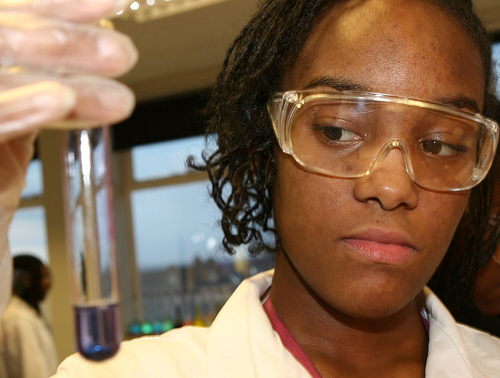Black History Month: Celebrating Black Scientists

In the United States, the proportion of black professionals in science and engineering occupations is “substantially lower” than their representation in the workforce as a whole1, even though a “relatively high” proportion of black students enter college intending to major in STEM (Science, Technology, Engineering, and Math) fields2. Many researchers have worked to pinpoint why this disparity exists and how to fix it. Interested in learning about the issues facing black scientists and STEM majors, or looking at successful black scientists throughout history? The Georgia State University Library has many resources of note, from accounts from black scientists to scholarly articles to encyclopedias. Check out a selection of our resources below, along with some links to organizations for black scientists.
Organizations:
- GSU Minority Premedical/Predental Association
- National Organization for the Professional Advancement of Black Chemists and Chemical Engineers
- National Society of Black Physicists
- Newtork of Minority Health Research Investigators
- NIH Black Scientists Association
Books:
Subject: African American scientists in GIL-Find
Articles:
Blair, J. (2012). Where are all the black women in science?. New Scientist, 215(2883), 50.
(1) National Science Foundation, Division of Science Resources Statistics. (2011). Women, minorities, and persons with disabilities in science and engineering: 2011. Arlington, VA.
(2) Maton, K.I. & Hrabowski, F.A. (2004). Increasing the number of African American PhDs in the sciences and engineering: A stregths-based approach. American Psychologist, 59(6), 547-556.